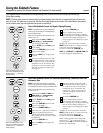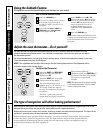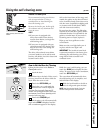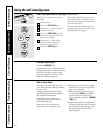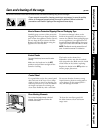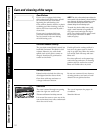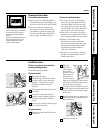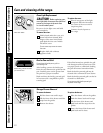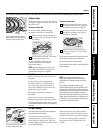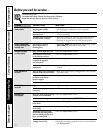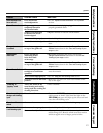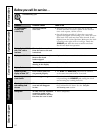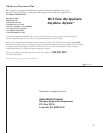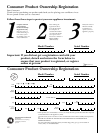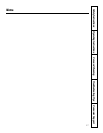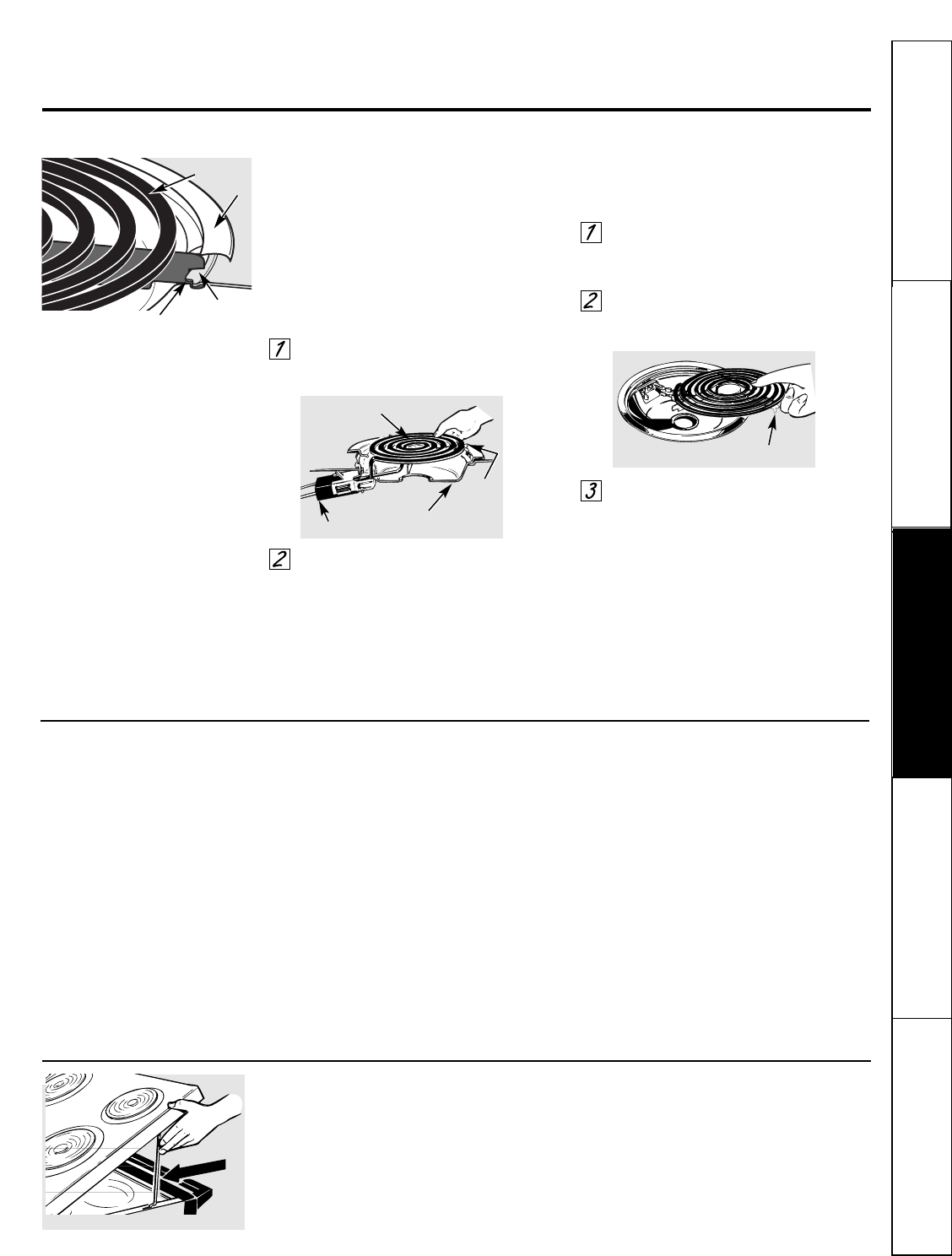
21
Safety Instructions
Operating Instructions Care and Cleaning
Troubleshooting Tips
Consumer Support
ge.com
Be sure the controls are turned to OFF and the surface units are cool before attempting to remove them.
Surface Units
To clean the surface units, turn the control to
the highest setting for a minute. The coils will
burn off any soil.
To remove a surface unit:
To remove the drip pans for cleaning,
the surface units must be removed first.
Push the surface unit back toward the
receptacle to free the locking tab from
the cooktop.
Lift the surface unit about 1 inch above
the drip pan and pull it out.
Do not lift the surface unit more than 1 inch.
If you do, it may not lie flat on the drip pan
when you plug it back in.
NOTE: Repeated lifting of the surface unit
more than 1 inch above the drip pan can
permanently damage the receptacle.
To replace a surface unit:
Replace the drip pan into the recess in
the cooktop. Make sure the opening in
the pan lines up with the receptacle.
Insert the terminals of the surface unit
through the opening in the drip pan
and into the receptacle.
Push the surface unit in and down to
lock the tab in place so it rests evenly in
the cooktop.
Do not immerse the surface units in liquids of any kind.
Do not clean the surface units in a dishwasher.
Do not bend the surface unit plug terminals.
Do not attempt to clean, adjust or in any way repair the
plug-in receptacle.
Drip Pans
Remove the surface units. Then lift out the
drip pans.
For best results, clean the drip pans by
hand. Place them in a covered container
(or a plastic bag) with
1
⁄4 cup ammonia to
loosen the soil. Rinse with clean water and
polish with a clean soft cloth.
The drip pans may also be cleaned in a
dishwasher.
Clean the area under the drip pans often.
Built-up soil, especially grease, may catch fire.
Do not cover the drip pans with foil. Using foil so close
to the receptacle could cause shock, fire or damage to
the range.
NOTE: If your cooktop is equipped with shiny,
silver-colored drip pans, do not clean them in the
self-cleaning oven. Permanent damage to the finish
can occur.
If your cooktop is equipped with black or gray
porcelain-coated drip pans, they can be cleaned in the
oven during the self-cleaning cycle. Before you begin a
self-cleaning cycle, remove any heavy soil from the drip
pans and place them on the porcelain-coated oven
shelves. Do not place the drip pans directly on the oven
bottom. After the self-cleaning cycle is completed and
the drip pans are cool, wipe them with a damp cloth to
remove any remaining ash or residue.
Lift-Up Cooktop
The entire cooktop may be lifted up and supported in
the up position for easier cleaning.
The surface units do not need to be
removed; however, you may remove one to
make raising the cooktop easier. There are
two side supports that lock into position when
the cooktop is lifted up.
After cleaning under the cooktop with hot,
mild soapy water and a clean cloth, lower the
cooktop. Be careful not to pinch your fingers.
To lower the cooktop, push the rods back
and gently lower the cooktop until it rests
in place.
Be sure all surface units are turned
off before raising the cooktop.
Surface unit
Drip pan
Receptacle
Locking
tab
Locking tab
Drip
pan
Cooktop
rim
When properly seated, the locking
tab should lock onto the cooktop rim
through the notch in the drip pan.
Surface
unit
Locking tab



